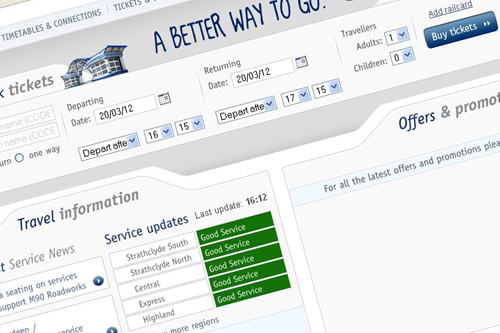RAIL passengers are being taken for a ride with travel fares because of “historic” failures in the pricing structure.
Commuters could be losing out on savings of more than a third because companies have not got rid of so-called “anomalies” in the ticket system.
This means that if train users started buying their journeys in stages than all at once – split-ticketing – then they could save a fortune.

Watchdogs have now called for the new procedures to be introduced immediately to stop loyal travellers being fleeced with high fares.
For example, an off-peak return journey from Glasgow to Dundee costs £36.
But an off-peak return using the split-ticket method of Glasgow-Stirling (£7.80), Stirling-Perth (£7.80) and Perth-Dundee (£8) means the overall cost is £23.60 – a saving of £12.40 (34%).
Other journeys include Inverness to Edinburgh where a super off-peak return costs £52.40.
But Inverness-Perth and then Perth-Inverness costs just £41.90 – a saving of £10.50 (20%).
ScotRail, who has more than 81 million customers a year, has admitted that it has more than 100 similar anomalies in its pricing guide – including issues with the newly opened Airdrie to Bathgate route.
Passengers travelling between Glasgow and Edinburgh pay £12.10 for an off-peak day return.
But those travelling to Edinburgh from Airdrie who are travelling just a third of the distance still have to fork out £11.80 – just 30p less.
Mike Hewiston, head of passenger issues at watchdog group Passenger Focus, said the problem needs dealt with as soon as possible.
He said: “We have argued that operators should be required to ensure that the walk-up through fare should never cost more than walk-up fares for individual legs of the journey.
“We don’t underestimate the complexity of the task facing the industry in tackling fare anomalies but it’s crucial this work is completed quickly to ensure passengers have faith in the system.”
“Profitable”
Barry Doe, a fare pricing expert who publishes directories of bus and rail timetables, said: “The whole system is locked into these silly historic anomalies that an organisation like British rail could have changed at any time, but a franchised system can’t without compensation.
“In some cases the original policy was deliberate. BR used to price up profitable routes so that main journeys like Glasgow to Dundee would cost more per mile than shorter ones in between.
“In those days there was no internet and people didn’t know and couldn’t buy combinations of tickets to get round it.”
Transport Scotland, who is responsible for ScotRail, vowed last year to have the problems fixed by 2014 when the contract is up for re-let.
But it is now saying that the anomalies will only be identified as part of a fares review.
A spokeswoman said: “We want to see a ticket pricing system on Scotland’s trains that is fair to all passengers and easy to understand.
“We are aware there are some fare anomalies. Since 2007 we have worked together with ScotRail to resolve fares issues which have arisen when new routes and stations have been introduced.
“We are undertaking a review of fares to inform proposals for the next franchise and as part of that work we are identifying, together with ScotRail, existing anomalies.”
A ScotRail spokesman said: “We have already rectified many anomalies and this has been done within what fares regulations permit, the franchise model and without duly impacting local markets and without creating new split ticketing opportunities.”